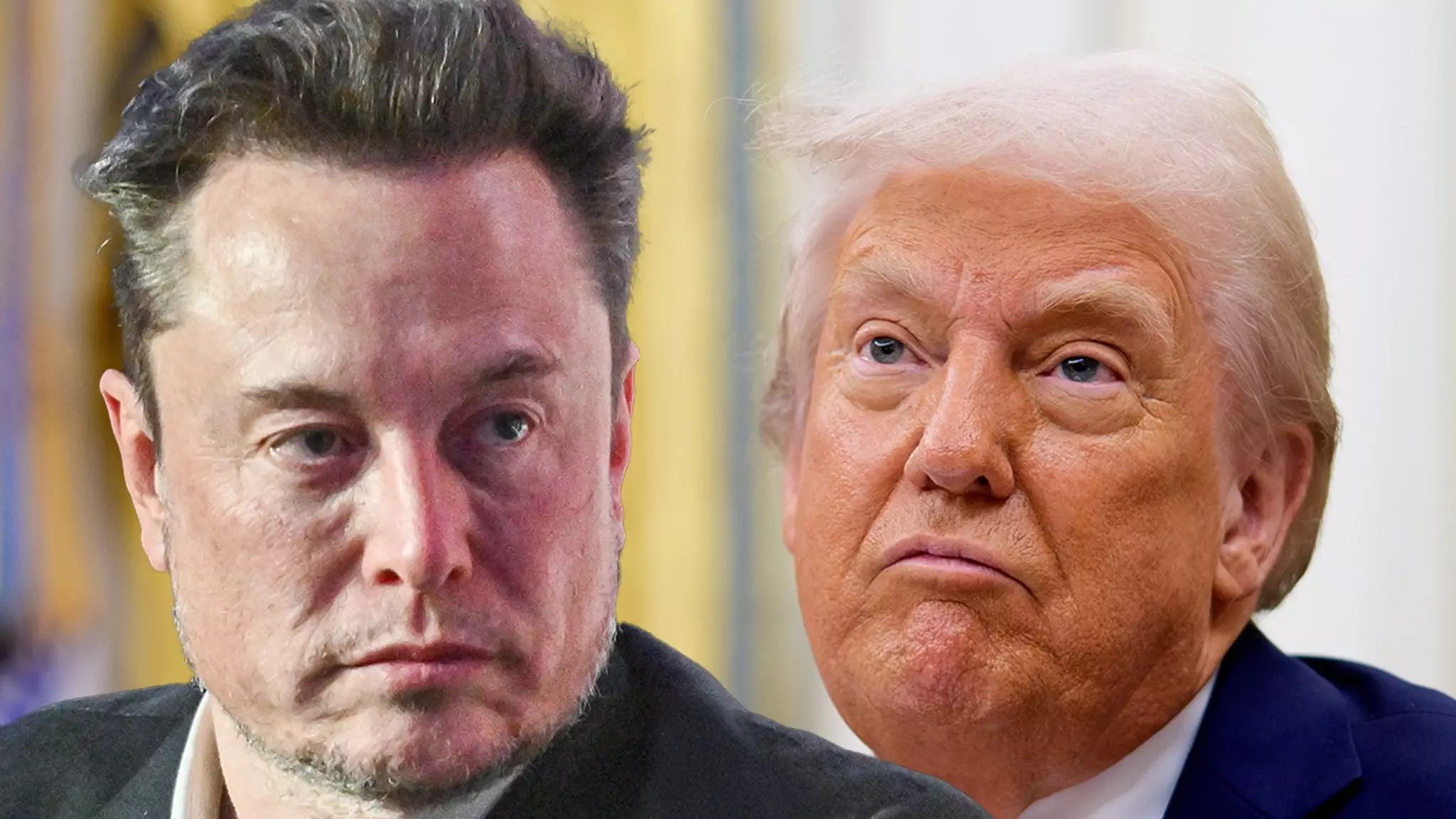In an era where social media platforms have transformed into battlegrounds for public opinion and political discourse, the recent feud between tech mogul Elon Musk and former President Donald Trump showcases the magnitude of this transformation. Musk, who is not only the CEO of Tesla and SpaceX but also a significant player in the social media landscape, has leveraged his presence on platforms like X (formerly Twitter) to engage with political figures in ways that were unimaginable just a decade ago. This clash, ignited by Musk’s audacious claims about Trump’s connection to the Epstein files, has spiraled into a multifaceted conflict that pulls in issues of political loyalty, governmental contracts, and burgeoning tensions over the future of technology and politics.
The Social Media Spark
When Musk tweeted about Trump being implicated in the Epstein files, he didn’t just throw down the gauntlet; he effectively escalated what was already a brewing storm. This wasn’t simply a casual jab; it was a bold declaration aimed at drawing public attention while also seemingly attempting to destabilize Trump’s public image. The directness of Musk’s statements suggests not only a personal vendetta but also hints at the dizzying power dynamic where a tech billionaire can publicly challenge a former president. This kind of engagement begs the question—what is the role of Social media figures in shaping political narratives today? It seems Musk believes he possesses a unique ability to influence outcomes merely through his platforms, a sentiment he publicly articulated by suggesting that Trump owes his electoral success to Musk’s support.
The Response and Retaliation
Trump’s counterattack, which involved assertions that Musk’s influence was overblown, highlights a critical facet of their rivalry: perception of control. Trump’s reference to a “nuclear” response through Truth Social shows his own adeptness at using social media not just as a communication tool but as a weapon. By threatening Musk’s government contracts, he brought financial stakes into the fray, making the conflict about more than just ego. This exchange illustrates the broader theme of vulnerability that can arise when powerful figures go head-to-head—both are aware that their respective fortunes could be impacted by public sentiment and political allegiance.
Additionally, Trump’s suggestion that Musk is experiencing “Trump Derangement Syndrome” postulates a psychological dimension, insinuating that Musk’s recent criticisms might stem from personal grudges rather than political ideologies. Here, we see a tactical psychological maneuver intended to undermine Musk’s credibility while simultaneously rallying his own followers.
The Underlying Implications
The implications of this feud extend beyond personal animosity and into the realm of ideological conflict. At play are significant issues like governmental support for technology and innovation sectors. Musk’s discontent over the recently passed tax and spending bill highlights a growing concern among corporate entities about government regulations and fiscal policies affecting their industries. Musk has publicly criticized the bill, calling it a “disgusting abomination,” indicating that influential figures in tech fear the loss of subsidies that have been critical for the growth of companies like Tesla, which partners heavily with federal programs.
Such fears underscore a dichotomy where financial benefits from the government are juxtaposed against political maneuvering. Musk framing his interests as aligned with a broader vision for government efficiency highlights an almost libertarian ideological bent—believing the government should foster innovation but be limited in its direct intervention in business.
The Cultural Review
The cultural significance of this drama between Musk and Trump can’t be overstated. It is emblematic of a new political landscape where technology, entertainment, and politics intertwine in complex ways. Social media now serves as a stage for these public figures, transforming what might have been a backroom rivalry into a spectacle for millions. Elon Musk has epitomized the archetypal tech entrepreneur ready to disrupt not only industries but also political landscapes, drawing a clear line between innovation and governance.
The feud suggests a future where political endorsements may come with the risk of public backlash not just from opposing parties but from within the supportive camp itself. This contentious relationship lays bare the challenges of navigating loyalty when political figures become entwined with entrepreneurial ambition and media presence. In the ongoing spectacle, it’s clear that the audience—us—will be the ultimate witnesses to the evolving narrative of power, influence, and the repercussions of public dialogue.







Leave a Reply